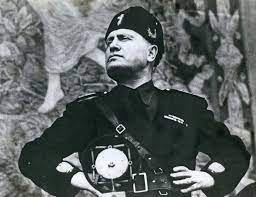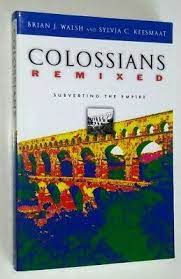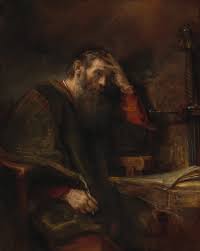 A sermon preached at the legendary Church of the Holy Trinity, Toronto,
A sermon preached at the legendary Church of the Holy Trinity, Toronto,
for the Feast of the Reign of Christ on November 20, 2022.
The biblical texts were Colossians 1.11-20 and Luke 23.33-43.
Leonard Cohen songs employed in the service and referenced in the homily were:
“Heart with no Companion”
“Ain’t No Cure for Love”
“Come Healing”
“Born in Chains”
“Hallelujah”
Let us pray:
Most Gracious God, who in Jesus of Nazareth showed us an alternative to the kings, queens and emperors of history, help us to revere and emulate Jesus’ leadership: To love, and to seek justice for all people. Help us to recognize the true grandeur and life-changing power based in loving you and all of our neighbors. In Christ Jesus with you and the Holy Spirit, may we co-create a world ruled not through domination, but in that radical and all-powerful compassion and love. Amen.
[Collect for the Reign of Christ, All Saints, Pasadena]
 As I walked into the building for the first time,
As I walked into the building for the first time,
I gasped.
The high arches of the ceiling
drew my eyes upwards,
and there seemed to be a call to ascend,
to rise higher,
a call to transcendence.
Light poured through the windows,
giving a sense of luminosity,
the light of the heavens.
It was clear that this was a place of rich abundance.
A place of good news.
A place of longings fulfilled.
What else was there to do in such a place,
but to heed the call to worship?
What else was there to do in such a place
but to bow before a sovereignty to which we owed our very selves?
What else was there to do in such a place
but to gratefully submit?
It was 1977.
And I had made my first visit
to the secular temple of consumerism
known as the Eaton Centre.
If I had entered from the north
it would have been a simple matter
of walking into a more modern department store.
But my entrance was from the south,
and the mall took my breath away.
I knew that this was a place of worship,
a place that called forth a consumerist piety,
what the Bible calls the pretend sovereignty of idolatry.
When I had taken to following Jesus
some eight years earlier
– just up the road at Yonge Street Mission –
I knew of the plans for the Eaton Centre,
and of the stubborn resistance of a group of Anglicans
at a church called Holy Trinity.
I didn’t know anything about Anglicans at the time,
but I knew that the resistance at the end of Trinity Square
wasn’t just a sentimental attachment to a building,
but a more profound statement about what (or who) is worthy of worship
and who is worthy of care and service in inner city Toronto.
If I might offer an interpretation of your own history,
dear friends at Holy Trinity,
it seems to me that this was a conflict of sovereignty,
more than land ownership;
it was a contest of opposing reigns, kingdoms if you will,
opposing loyalties.
You see, while there was some similarity between
the architecture of the south end of the mall
and this church building in 1977,
the worship that was on offer,
indeed, the good news that was proclaimed,
couldn’t have been more different.
Consumptive satiation for the rich
or sustenance for our poorest neighbours?
Profit-driven greed or justice?
Mammon or Jesus?
The reign of consumer capitalism or the kingdom of God?
Something akin to this is what was at stake when Pius XI
instituted a new feast day in 1925.
The Feast of Christ the King, or The Reign of Christ,
was a response not just to the rising secularism of the early 20th century,
but more specifically to the alarming ascendance
of ultra-nationalist fascism
in Europe between the two world wars.
While for Pius XI it may have also been a reaction
to the decline of Christendom,
and a rejection of a liberal pluralism
that embraces multiple worldviews, faiths and ideologies,
there is a fundamental truth at the heart of this feast day:
culture, society, economics, politics and personal life
all happen in the crucible of conflicting loyalties,
contested sovereignties.
And so we gather this morning,
in this holy place,
this site of resistance,
to reflect on the reign of Christ.
 In the face of conflicting loyalties,
In the face of conflicting loyalties,
in the face of demonic ideologies,
in the face of usurpers of sovereignty,
indeed, in the face of a rising fascist threat,
we dare to proclaim the reign of Christ.
And we do so in conversation with two Jewish poets,
both of whom bow before the sovereignty of the Creator,
and both of whom have struggled with Jesus of Nazareth.
St. Paul and Leonard Cohen are both poets of praise.
They both bear witness to the Holy One.
They both offered their lives, in all of their brokenness,
with all of their contradictions and betrayals,
as an offering of thanksgiving.
“Wretched man that I am! Who will rescue me from this body of death?
Thanks be to God through Jesus Christ, my Lord.” (Rom 7.24),
Having soiled my heart,
I lift my heart to you.
Having wasted my days,
I bring the heap to you.
[“Not Knowing Where to Go, Book of Mercy]
There is, I think, a spiritual kinship
between these two poets.
You see, neither St. Paul, in the face of the Roman empire,
nor Leonard Cohen, in the face of an imperial secular capitalism,
shrink from talking about a sovereignty, a rule,
indeed a Ruler, a Sovereign One,
as alternative to the false sovereignties that hold our imaginations captive.
In the face of crushing disappointment,
of callings frustrated,
empty cradles for confused mothers,
unbuilt ships for captains of the sea,
the loneliness of hearts with no companions,
ballerinas who cannot dance us to the end of love,
and … souls without a king,
that is, in the face of a sorrow and despair that is endemic to our times,
the poet bears witness to
a love so vast and shattered
it will reach you everywhere.
Cohen’s “Heart with no Companion” is a country tune
of repair, restoration and return.
Not blinking from the
days of shame that are coming, or
the nights of wild distress that are upon us,
our priestly poet calls us where only a Jew could call us
– back to covenant.
Tho’ your promise count for nothing
you must keep it nonetheless.
Though our covenant breaking past is well known,
though we seem to be incurable promise breakers,
the poet calls us to keep covenant for the sake of
those confused mothers, unfulfilled sailers,
the lonely, the confused, the frustrated, the lost.
Keep covenant, hold your promise,
for the soul without a king.
Leonard Cohen is a post-secular poet.
His witness is decidedly against modernist autonomy.
Against a secular vision of life that can live without worship.
Against a life without God, even if that life is to be one of conflict,
lament, and struggle.
You see, “the soul without a king”
is a lost soul,
a soul without grounding,
a soul without calling,
a soul without hope,
a lonely soul lost within itself.
And somehow, we all know this to be true.
It has always been an illusion to believe in autonomy.
Secularism is not a religiously neutral vision of life,
it is a religion itself.
None of us lives alone,
all of us need a vision, a goal, a higher calling.
Deep at the heart of things,
every soul needs a king.
No wonder Cohen’s “Hallelujah” has resonated
more than any other song at the end of modernity.
“Hallelujah” is a post-secular hymn.
Something deep in the human soul wants to sing
“Hallelujah” even if we don’t understand that this
is singing praise to God.
Of course the song interweaves piety and sexuality,
the two have never been separable.
Regardless of whether it is in the climax of sexual intimacy,
or deep in the heart of prayer, human life is at its most authentic,
when every “breath we draw is Hallelujah.”
Now, offering our Hallelujah’s has never been easy or without tension.
Whether we are remembering the voice of the ancient psalmists,
or we are singing in our own post-secular confusion,
these are always cold and broken Hallelujah’s.
We come to the Feast of the Reign of Christ,
in such confusion,
with such brokenness,
bearing the burden of all that has been done
in the name of this King.
So perhaps before we have the boldness to sing
even our broken Hallelujah’s
we need to let Leonard lead us in a penitential hymn,
a prayer for healing.
O gather up the brokenness
and bring it to me now
The fragrance of those promises
You never dared to vow
The splinters that you carry
The cross you left behind
Come healing of the body
Come healing of the mind
And let the heavens hear it
The penitential hymn
Come healing of the spirit
Come of healing of the limb
Gather up the brokenness,
the broken promises,
the broken souls,
the broken hearts,
the broken people,
and bring it all into a penitential hymn,
a hymn of confession.
Gather up this brokenness somehow in memory of the cross.
Gather it all for a healing that will be deep enough and wide enough
to address the breadth and depth of our broken, fractured lives.
And let the heavens hear it,
let the earth proclaim,
there is a healing afoot,
there is a love so vast and so shattered,
that it can reach us everywhere.
This is a creation-healing love
because it comes from the very heart
of the creation-loving Creator.
And somehow, this love has something to do with Jesus.
Leonard and Jesus had this thing going from his earliest hit, “Suzanne
to his “Seemed a better way” on the album released days before his death.
Consider these remarkable lines from “Ain’t No Cure for Love”
I walked into an empty church
I had no place else to go
when the sweetest voice I ever heard
whispered to me soul
“I don’t need to be forgiven
for loving you so much.
It’s written in the scriptures,
it’s written there in blood.
I even heard the angels declare it from above,
there ain’t no cure,
there ain’t no cure,
there ain’t no cure for love”
Next to …
Christ has died
Christ has risen
Christ will come again …
is there a more concise or eloquent summary
of the gospel than that?
God cannot be cured of love.
God cannot help herself.
The covenant God is bound by covenantal love.
It’s written in the scriptures,
it’s written there in blood.
This is, of course, an allusion to the cross.
It is a bloody thing, the Reign of Christ.
It is a bloody thing, this “King of the Jews.”
It is a bloody thing, this coronation service.
The human soul needs a king,
but none of the kings of history will do.
The human soul needs a sovereign,
but the oppressive regimes of history will never meet the need.
That is where the gospel turns kingship on its head.
That is where the Reign of Christ isn’t playing by the same rules
as the fascism this festival is meant to contest.
This is a king mocked, abused, scoffed at,
ridiculed, scorned and derided.
Yet this is a king who’s word from the cross
is a word of forgiveness.
“Forgive them, for they know not what they do”
the crucified Messiah prays.
“Jesus, remember me when you come into your kingdom,”
the penitent criminal replies.
Here is a soul likely on a cross because he longed for a king.
Here is a soul who meets that king in the most impossible place.
And the word of forgiveness, already uttered,
becomes a word of comfort,
“Today, you will be with me in Paradise.”
So what of our other Jewish poet this morning?
What does St. Paul make of this king on a cross?
How does St. Paul proclaim the reign of Christ
in the face of the Roman imperial regime?
Well, like Cohen, indeed, like any faithful Jew,
Paul understands that there is no reign apart from a realm,
and to live joyfully under the reign of God,
to live faithfully under the reign of Christ,
is to be liberated from the realm of empire
to take up residence under the reign of Christ.
St. Leonard puts it this way:
I was born in chains
But I was taken out of Egypt
I was bound to a burden
But the burden it was raised.
Standing in the rich and liberating tradition of the exodus,
the poet confesses that he was
… pursued by riders
Of a cruel and dark regime
But the waters parted
and my soul crossed over
Out of Egypt
Out of Pharaoh’s dream
St. Paul puts it this way:
“God has rescued us from the power of darkness
and transferred us into the kingdom of his beloved Son,
in whom we have redemption,
the forgiveness of sins.” [Col. 1.13-14]
Neither Leonard nor Paul can imagine redemption
apart from an exodus liberation story.
Neither Leonard nor Paul can imagine the rule of the Holy One
apart from being liberated from the realm of a cruel and dark regime
into the realm of God.
 But it is Paul, not Leonard,
But it is Paul, not Leonard,
who will provide
the most eloquent poetry of resistance
for the Reign of Christ.
You see, after echoing the exodus story
of being liberated from one realm to another,
Paul goes on to poetically evoke the Reign of Christ
in terms that are breathtakingly subversive in the face of the empire.
In a regime where the emperor’s image is ubiquitous
on coins, in murals, art and statues,
and in which the emperor is taken to be nothing less
than the son of a god,
Paul has the audacity to depict
Jesus as the image of God
Jesus as the firstborn, the son,
not abstractly of a god,
but of all creation!
If you want to know what God looks like, look at Jesus!
If you want to know what it means to be created in the image of God, look at Jesus!
In the face of the arrogant claims to universal sovereignty of
the empire and the emperor,
Paul will claim that all things
in heaven and earth
visible and invisible,
even the thrones, dominions, rulers, and powers of the empire itself,
all things have been created through him and for him.
You see friends, if we are going to celebrate
the Feast of the Reign of Christ,
then we need to go over the top!
Jesus is before all things,
and in Jesus all things cohere.
If the woundedness of the world
reaches to the brokenness in every atom,
then a reconciling and healing rule
must reach into the very depths of all things.
To anyone with ears to hear in the first century,
this wasn’t just grandiose,
it was dangerous blasphemy,
an outrageous and seditious poetry of subversion.
But when the poet then brings the church into the story,
well then things are getting very dangerous.
This Jesus who is the lord and creator of all things,
is the head of this small, struggling,
alternative community called the church.
You see,
if Jesus replaces Caesar
who is the “head” of the body-politic of the empire,
then Paul proclaims that the church,
the community who have been set free from that regime of oppression,
replaces the body-politic of the empire.
Like Cohen so many years later,
St. Paul has seen the future of the empire,
and it is murder.
In the face of the empire he is saying it clear, he’s saying it cold,
it’s over, it ain’t going any further.
The time of the empire is over
because the Reign of Christ has come.
The reign of Caesar is over
because Jesus is the beginning,
the firstborn from the dead,
the resurrected Messiah.
The kingdom is at hand,t
he fullness of God is happy to dwell with us again,
and all things that have been broken,
all that has been fractured,
all that has been cast aside,
all that is alienated,
will be reconciled, renewed, repaired, restored.
The cosmic vision is breathtaking, my friends!
All things reconciled
whether on earth or in heaven,
visible or invisible,
thrones, dominions, rulers, powers,
all things reconciled in the Reign of Christ.
How?
Well, this is perhaps the one point in history
where the overthrow is indeed by using the masters tools
against the master.
“By making peace through the blood of the cross.”
It all happens on a cross
it all happens at a state execution
it all happens at the hands of the empire
that has captured our imaginations
it all happens through blood
not through a power grab by the sovereign one
it all happens in embraced pain
for the sake of others
it all happens on a cross
arms outstretched in embrace
and this is the image of the invisible God
this is the body of Christ,
this is the Reign of Christ.
And that is why, my friends, on this Feast of the Reign of Christ,
I can join my voice with Leonard Cohen and sing:
even though it all went wrong
I’ll stand right here before the Lord of Song
with nothing on my tongue but Hallelujah.
Amen

